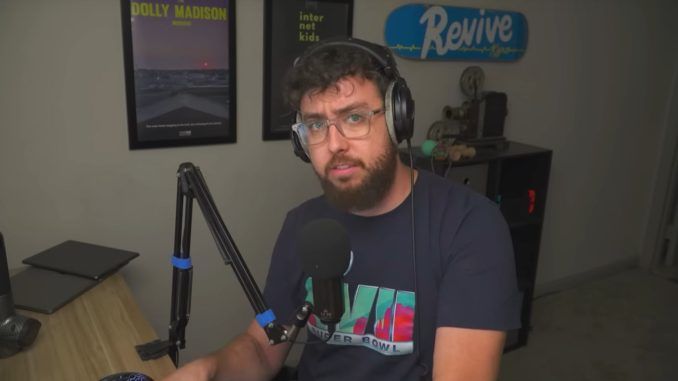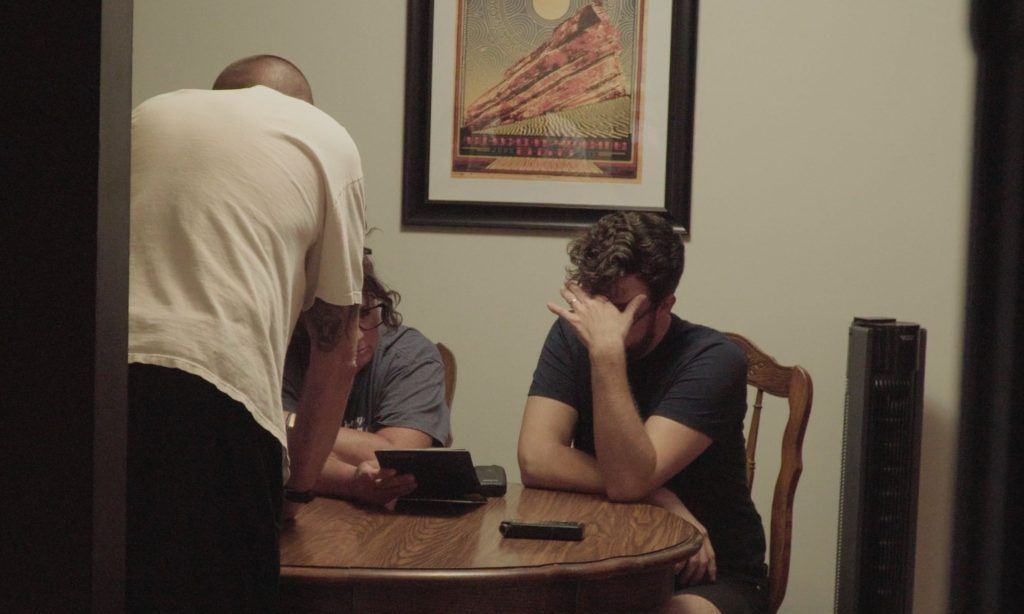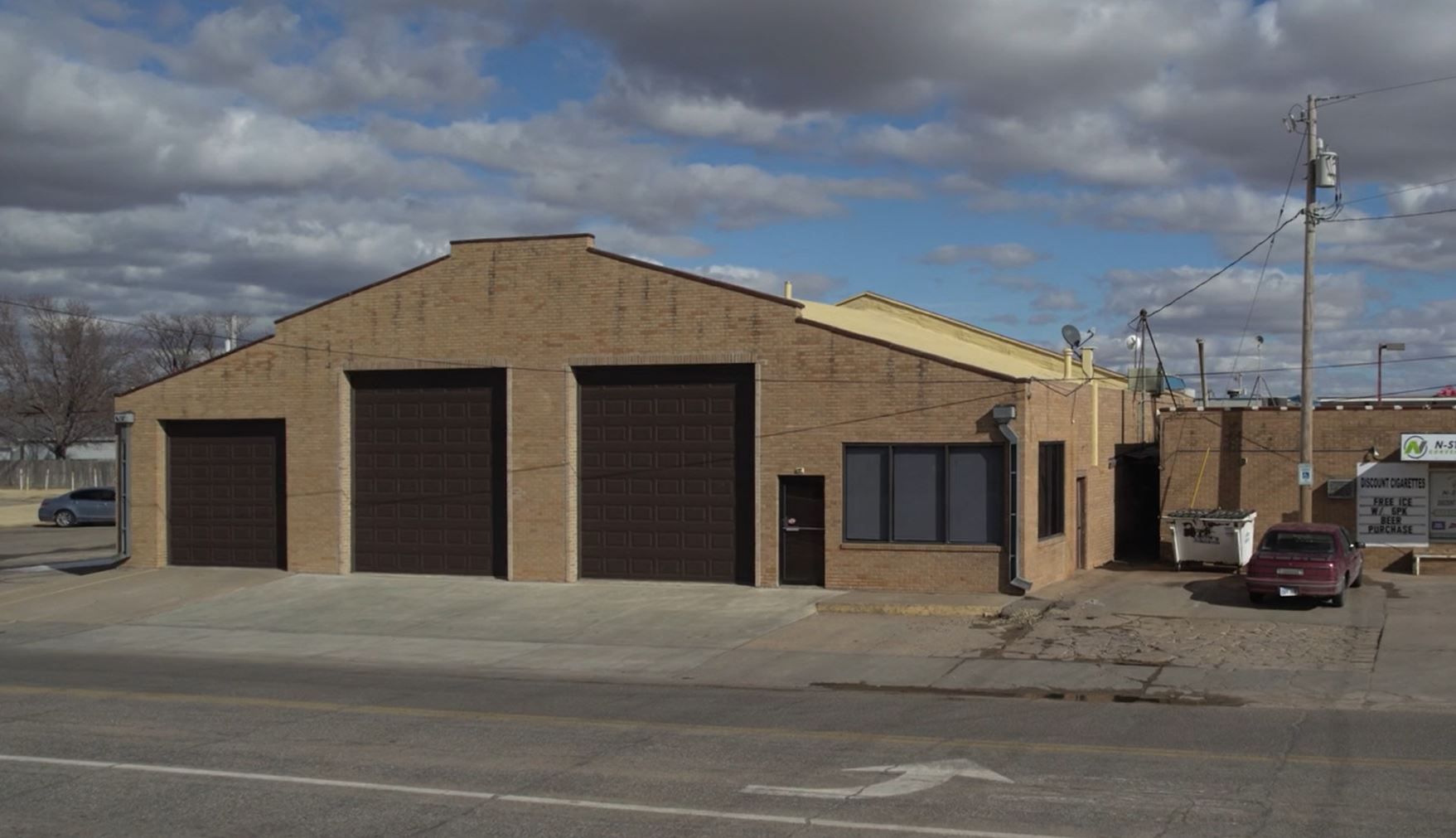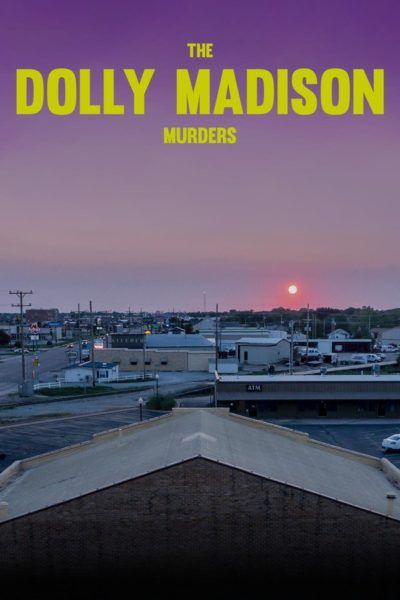
The Dolly Madison Murders is another example of why Tubi is my favorite streaming service. The company’s slogan is “Find your next rabbit hole,” and that’s exactly what this ended up. A random post on the Tubi subreddit, pointed me in the direction of The Dolly Madison Murders, a documentary by Aaron Mull which tells the story of a double homicide case in his home town, from not long into the new millennium. The term “rabbit hole” has never been more apt, for I found myself not just watching the documentary, but looking the case up online, and talking to the director. For it’s an intriguing story of unexplained violence, questionable police actions and the harsh reality of murder. Here’s what Aaron has to say about the case, his film, and whether he thinks the case will ever be solved.
Why did you decide to make a documentary about a 20-year-old unsolved murder case?
I grew up in Great Bend, Kansas. My first childhood home was 250 feet from where the Dolly Madison Bakery once was. It’s a story that I’ve always remembered, and one that I thought always deserved more attention.
How receptive were the families of the victims to this project?
Overall, I think that the families were more surprised than anything that somebody was telling this story 20 years later. It’s often easy to lose sight of the fact that these are real people. Mandi and Mary had their own families and friends, who miss them both dearly. For me, it was important to tell their stories in the best possible way, while being mindful that the victims’ loved ones will see it too.
“It makes you question how much of it was taken seriously.”
Conversely, how did the authorities, past and present, react to you?
Law enforcement has been incredibly hesitant to speak about this case. The KBI [Kansas Bureau of Investigations] almost seemed annoyed or bothered by the fact that there was a documentary being made. Some of the retired officers were initially interested in speaking to me, but they later declined to speak. It was hard to get the story from the law enforcement’s perspective based on how quiet they kept.
What was the most surprising thing you found out about the case, over the course of making the film?
The most surprising thing to me was all of the stories of people that claimed to have gone to law enforcement with information that were completely turned away or not taken seriously. Of course there’s always two sides to every story, but when you hear things like that it makes you question how much of it was taken seriously.
It was very much a “one man” production? What were the pluses and minuses of doing it that way?
I think one of the benefits was the fact that I did not have to coordinate any travel or plan around a crew being at each shoot. It can be hard to get people lined up for interviews in a 20 year old case, so me being able to be flexible and shoot an interview with two hours notice was key. I flew back to Kansas five times throughout an eight-month period to gather the footage and interviews needed for the project.

Why did you keep the running-time down to less than an hour? Listening in particular to the deep dive podcast, it seems there was a lot of scope for a longer film.
The 53-minute runtime was solely based on the material I had going into the edit. I remained pretty low key during the production, and that meant very few people knowing I was making the documentary in the first place. Had I been more public about the project, I likely would have gotten connected with more people to be able to tell a deeper story. It wasn’t until AFTER the project was completed and people knew about it, that I received the large number of phone calls, which ultimately made up the deep dive podcast.
The podcast in particular highlights a number of flaws in the investigative process. What was the most serious one to you?
The most serious to me was the man that checked into a nearby hotel the night of the murders, and had shaved his head when he checked out. Law enforcement not taking that seriously is baffling to me.
“I believe that the release of the “new DNA” was 100 percent a result of the documentary being released.”
Do you think the release of the “new” DNA findings was a result of your asking awkward questions?
I believe that the release of the “new DNA” was 100 percent a result of the documentary being released. I believe law enforcement wanted to seem as if they’ve been working on the case all along, yet in the last 20 years they haven’t gone public with anything.
The brutality of the killing implies a personal motive, but there’s also evidence pointing to a robbery gone wrong. Which do you feel is most likely?
Every other day the internal theory that in my head changes. Part of me believes that this was somebody local that is connected in some way to one of the victims, and part of me believes this was a transient that snapped, and was long gone before law enforcement began looking for him.
Realistically, do you feel the case will ever be solved?
Unfortunately, I do not believe it will ever get solved. I would love to be surprised though.
Tell us the biggest lesson you learned over the course of making the film.
I would say my biggest lesson or take away from this project is knowing that anyone has the ability to get these stories out there. This is just one case out of a small town in central Kansas. There are hundreds, even thousands of stories around the world begging to be told, and I’m more inspired now to find that next story.

The Dolly Madison Murders (2023)
Rating: B+
Dir: Aaron Mull
Star: Desiree Werth, Marty Keenan, Aimee Wangberg, Reggie Kern
Despite what TV crime shows tell you, around 40% of murders in United States are unsolved. Each one has its own story, of sudden loss and months, years or even decades without closure. Mull’s documentary takes a look at one such crime: a double homicide in 2002, at the Dolly Madison bakery, located in the small town (population around 15,000) of Great Bend, Kansas. 79-year-old customer Mary Drake and 24-year-old employee Mandi Alexander, were found dead in the back of the store. The killings were brutal: according to Alexander’s sister, “The only thing holding her head on was her spinal cord.” A witness saw somebody leaving and locking up the bakery, but over 20 years later, nobody has even been arrested for the crimes.
It’s intriguing, right from the get-go, with a sharply edited montage that does a very nice job of setting the scene and laying out the basic elements of the case. The film then cranks back to 2002, the discovery of the bodies, and the subsequent investigation. It’s a maze of dead ends and contradiction. The savagery of the assault implies a very personal motive – but Alexander was a late stand-in for the scheduled worker. There had been a previous robbery at the store, yet there were better targets on the same corner. Surveillance footage from a next-door business creates a person of interest, only for them to be ruled out. I can only imagine how disheartening it all was for Mary and Mandi’s relatives.
 Not helping matters there, are rumblings of discontent in regard to the way the police handled the case. Complaints and allegations include not securing the initial crime scene, mishandling evidence, and failure to acquire comprehensive DNA evidence. Then, 20 years after the event – while Mull was making his documentary and asking awkward questions – it’s suddenly announced by the police they have DNA. Just “not a profile that we can place into a national database and search.” Hmm. That’s basically where the story ends. It’s a frustrating viewing experience, with nothing resolved: yet that’s exactly the way life is. Most of the time, things don’t end, all neatly tied up with a fade to black, as we go into the commercial break.
Not helping matters there, are rumblings of discontent in regard to the way the police handled the case. Complaints and allegations include not securing the initial crime scene, mishandling evidence, and failure to acquire comprehensive DNA evidence. Then, 20 years after the event – while Mull was making his documentary and asking awkward questions – it’s suddenly announced by the police they have DNA. Just “not a profile that we can place into a national database and search.” Hmm. That’s basically where the story ends. It’s a frustrating viewing experience, with nothing resolved: yet that’s exactly the way life is. Most of the time, things don’t end, all neatly tied up with a fade to black, as we go into the commercial break.
It runs a brisk 52 minutes, and it feels like there was room for expansion in some areas. Mull has a “deep dive” on his YouTube channel, which fills in additional background plus updates, and is very much worth a look. It definitely makes the authorities seem, at best, recklessly irresponsible. But the documentary stands perfectly well on its own, opening a door to a dark corner of Americana, one I hope never to experience personally. In 2021, there were over 70 homicides a day in the US. The vast majority don’t make national news, and even locally, are quickly forgotten. But for those affected by murder, life will never be the same again. That may be what I took away from this, more than anything else.
The Dolly Madison Murders is available on Tubi and Apple TV.
